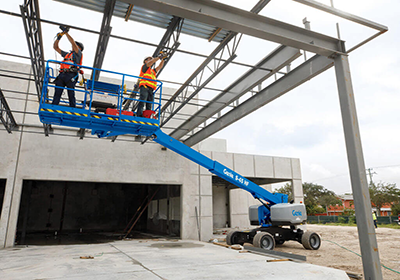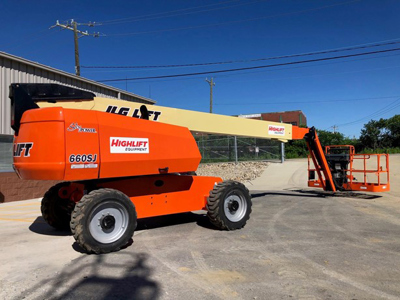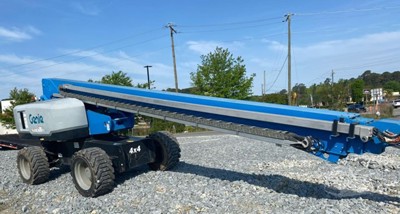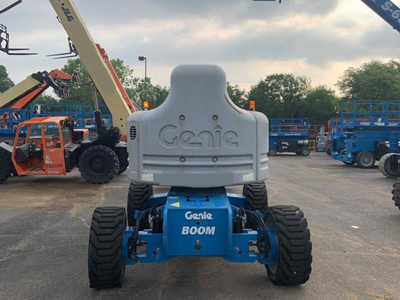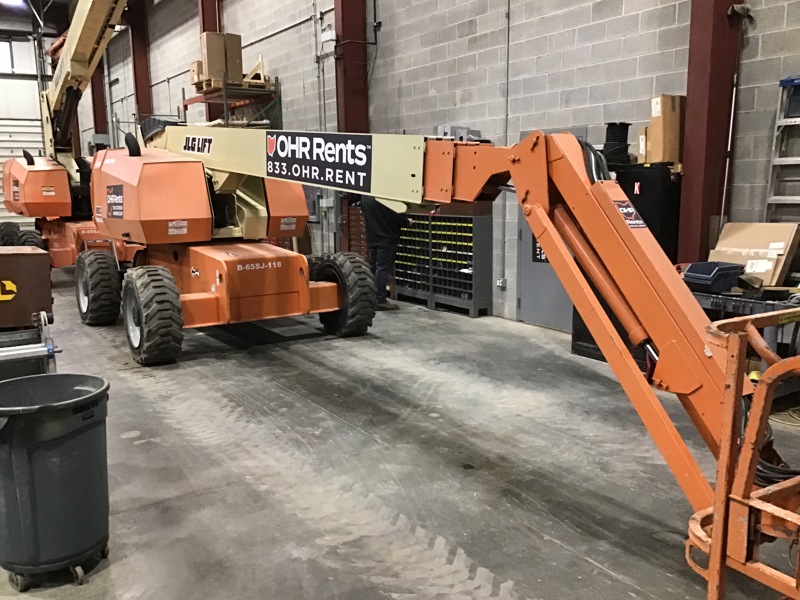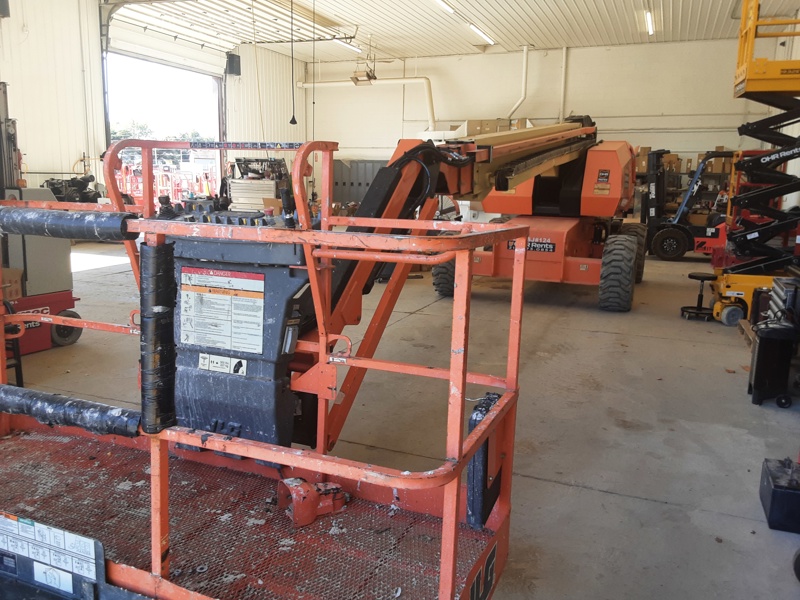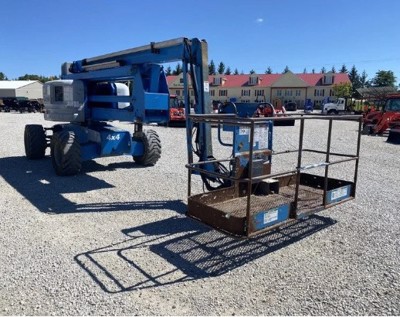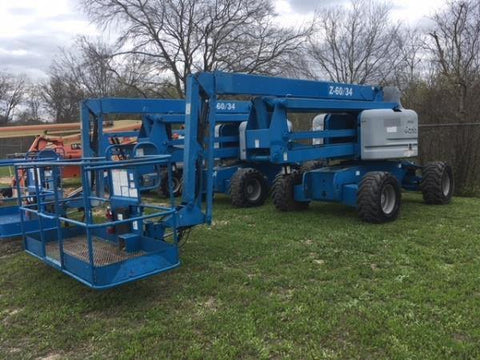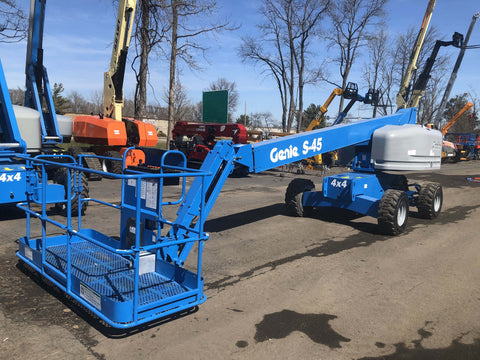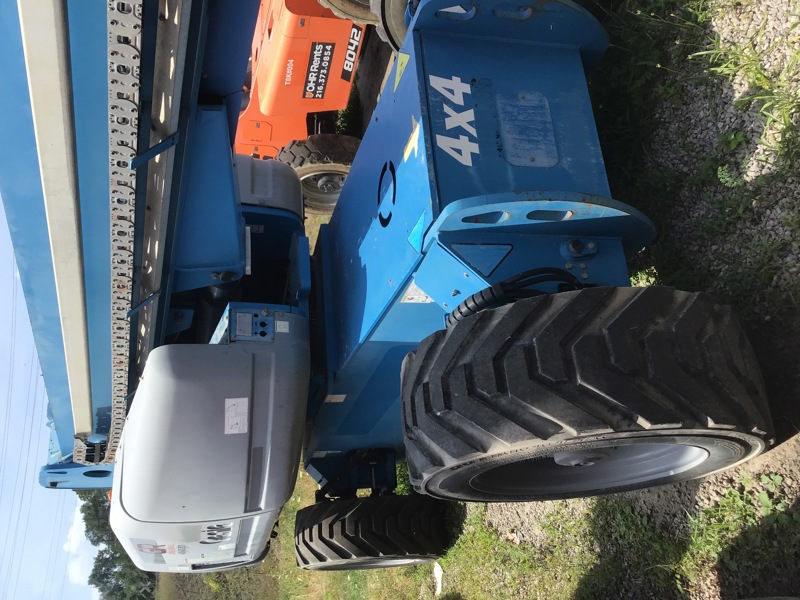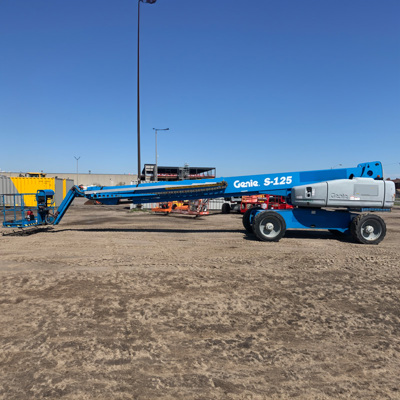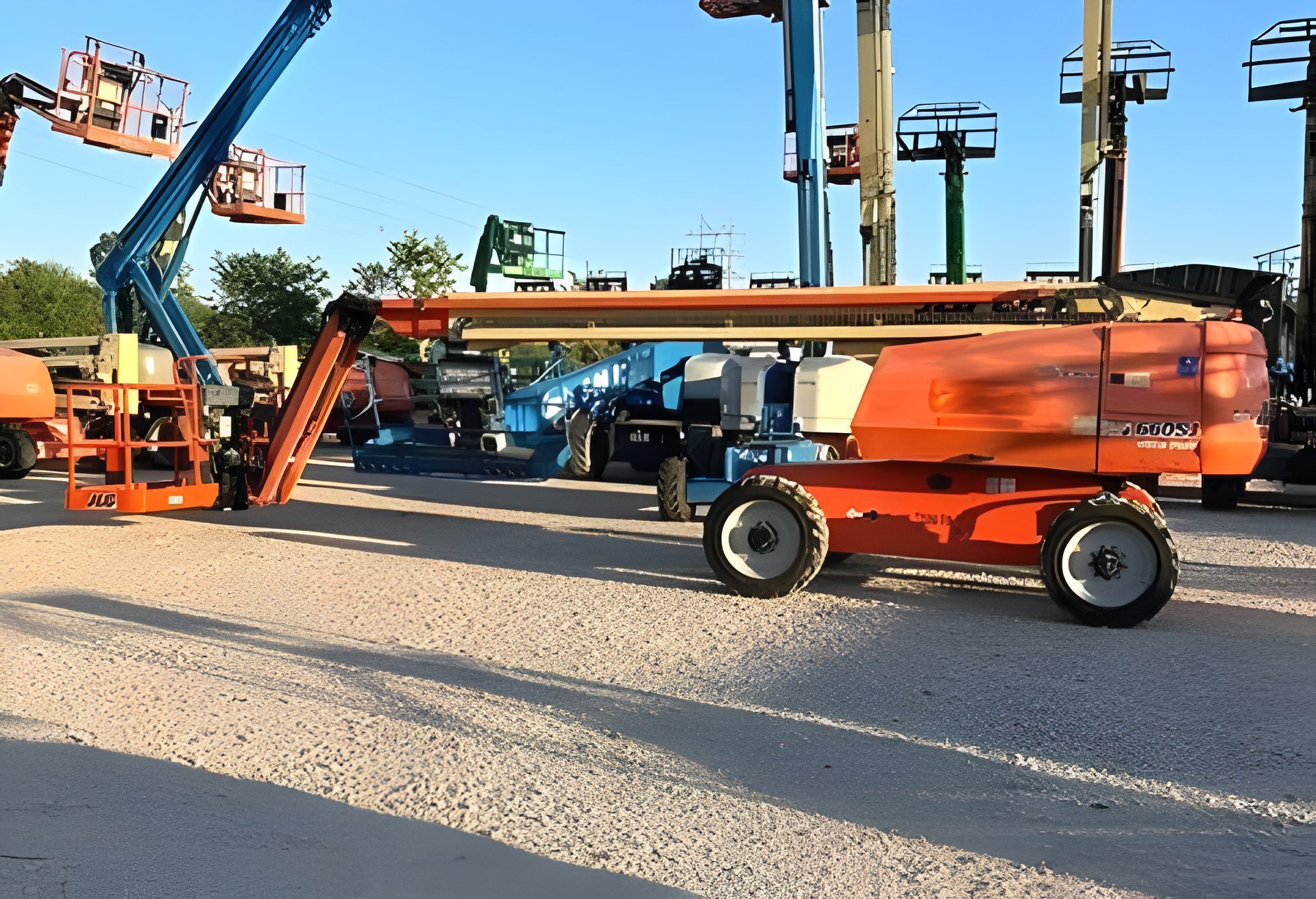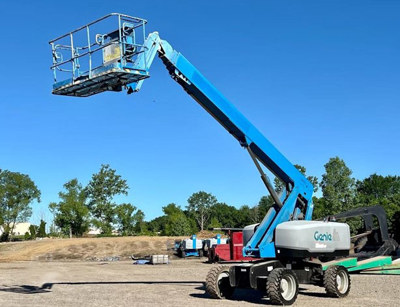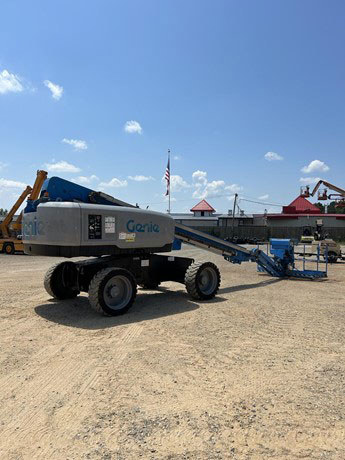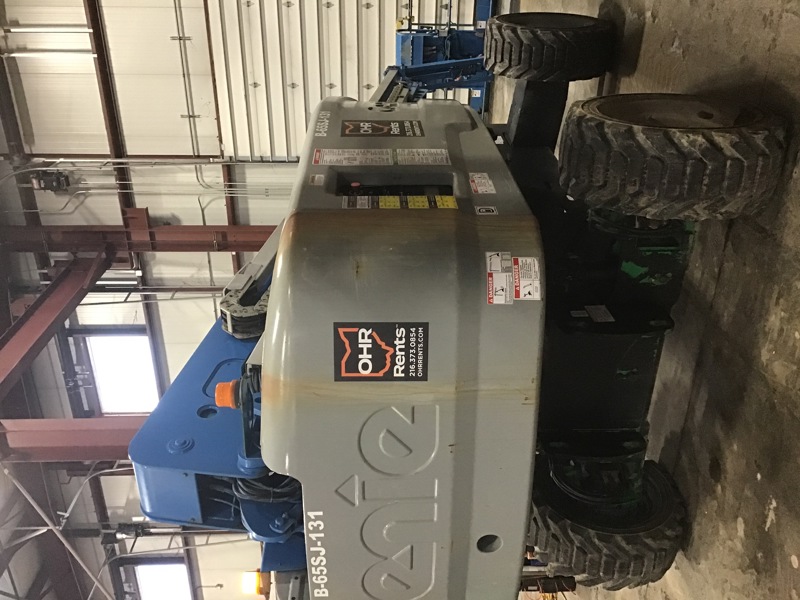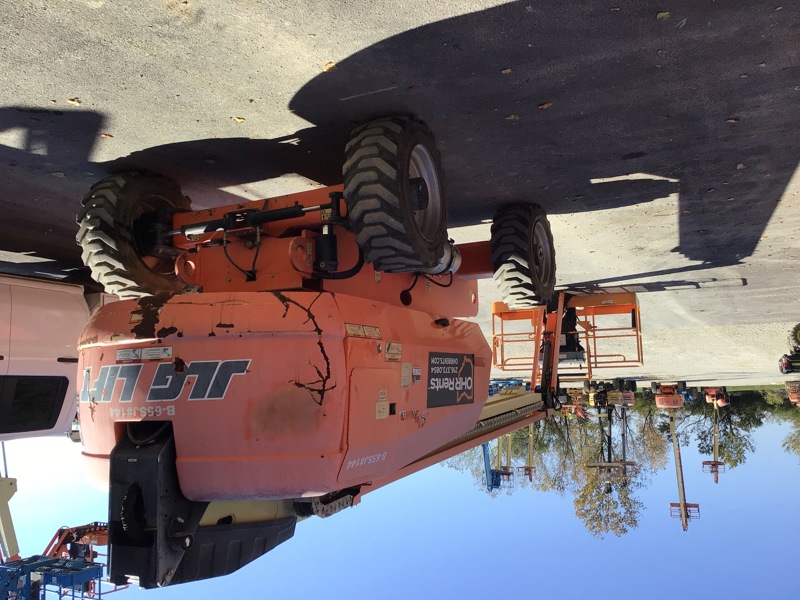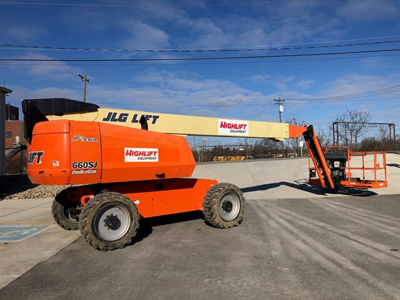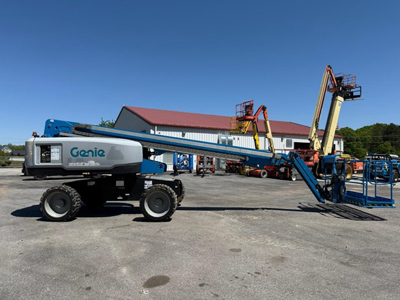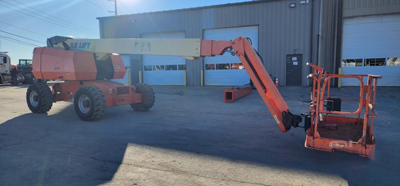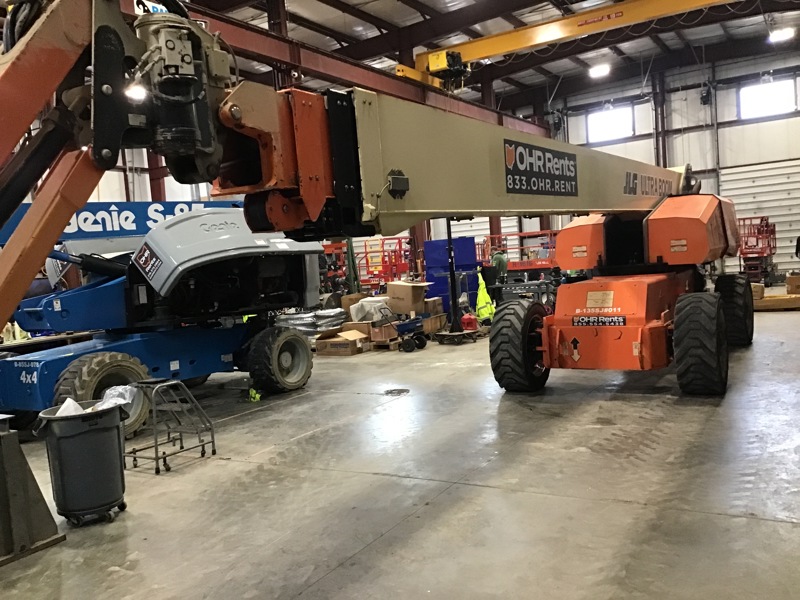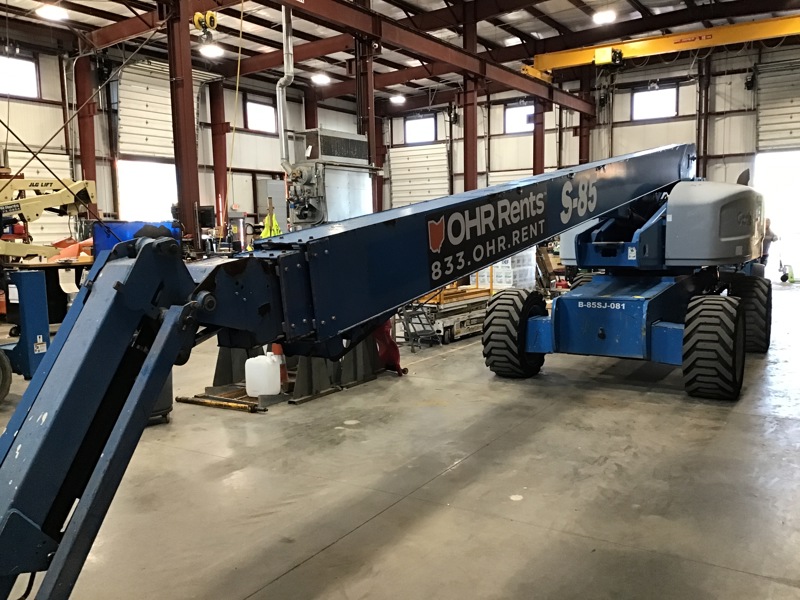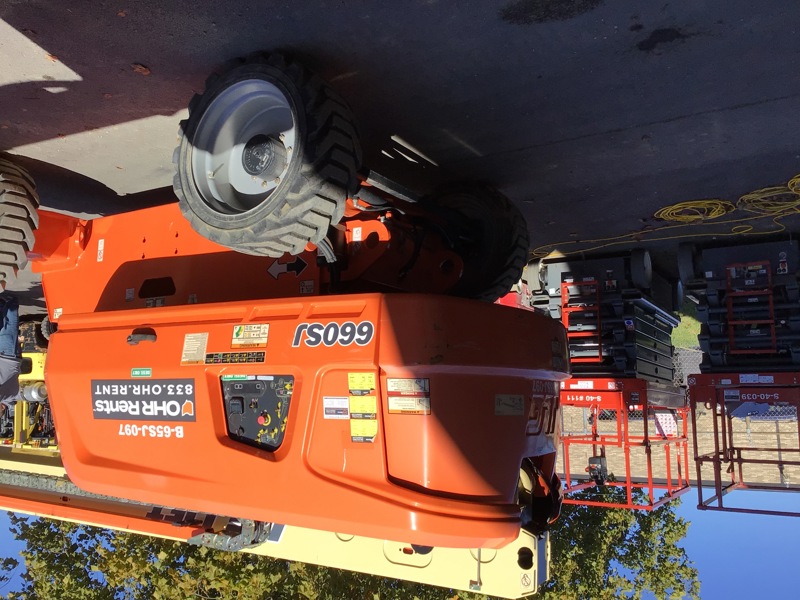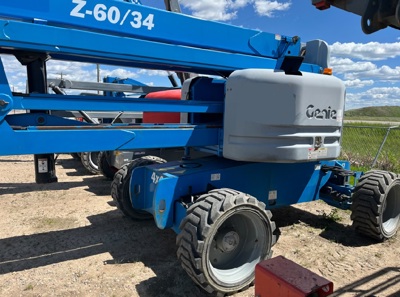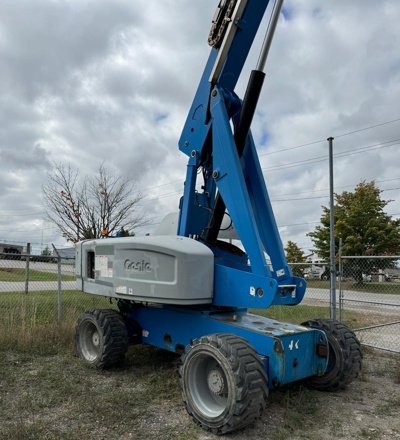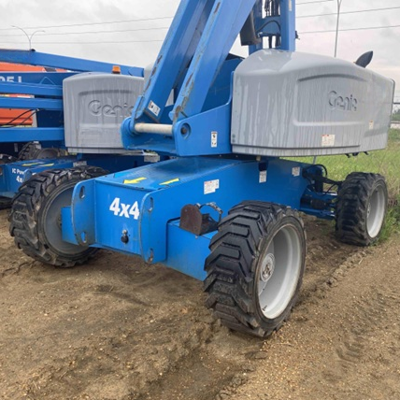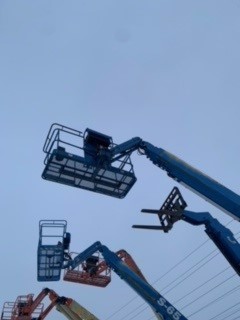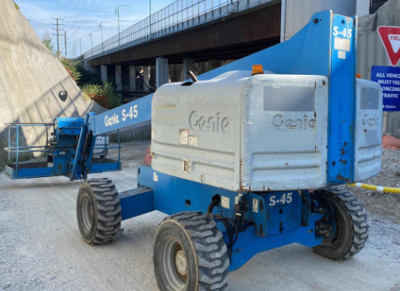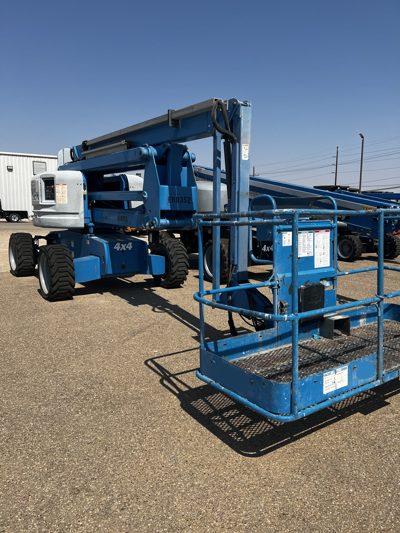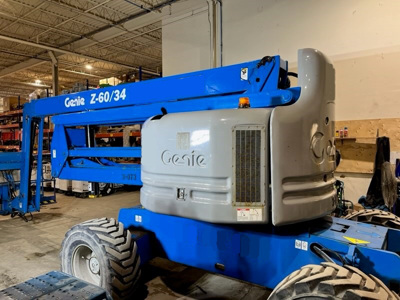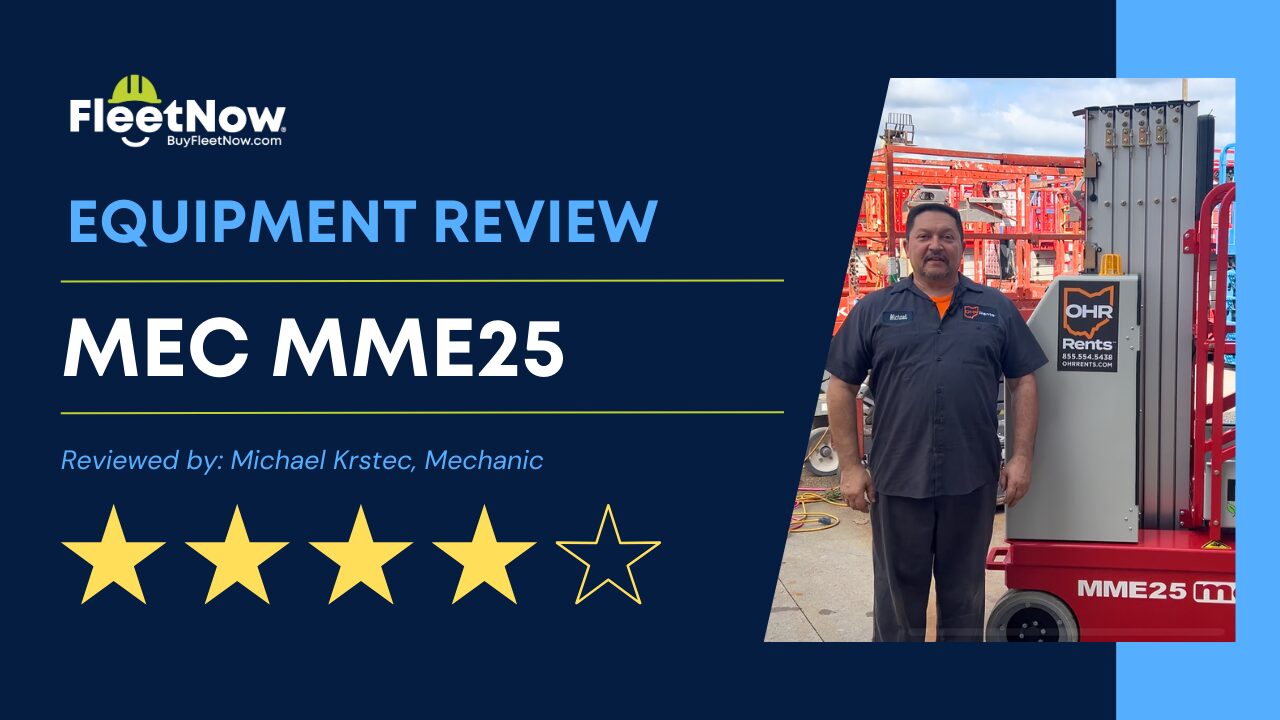Boom Lift Types
Telescopic Boom Lifts: These boom lifts feature a straight, extendable arm (boom) that can be extended horizontally and vertically. They are ideal for reaching high areas with accuracy and efficiency. Telescopic boom lifts are often used in construction, maintenance, and industrial applications.
Articulating Boom Lifts: Articulating boom lifts have multiple sections (or “joints”) that allow the arm to bend or articulate. This enables the platform to reach over obstacles and access tight spaces more easily than telescopic boom lifts. They are commonly used in tasks where precise positioning is required, such as painting, electrical work, and maintenance in congested areas.
Towable Boom Lifts: These boom lifts are designed to be towed behind a vehicle to different job sites. They are lightweight and compact, making them easy to transport and maneuver. Towable boom lifts are typically used for tasks such as tree trimming, outdoor maintenance, and signage installation.
Crawler Boom Lifts: Crawler boom lifts are mounted on tracks instead of wheels, providing stability and traction on rough or uneven terrain. They are suitable for outdoor applications where traditional wheeled boom lifts may struggle, such as construction sites, landscaping projects, or maintenance in rural areas.
Boom Lifts for Sales on BuyFleetNow.com
What are Common Boom Lift Sizes?
Boom lifts come in a variety of reach heights to accommodate different tasks and working environments. Here are some common reach heights for boom lifts:
Small Boom Lifts:
Working height: Approximately 30-45′
Horizontal reach: Approximately 15-25′
Medium Boom Lifts:
Working height: Approximately 45-80′
Horizontal reach: Approximately 30-50′
Large Boom Lifts:
Working height: Approximately 80-135′
Horizontal reach: Approximately 50-75′
Ultra-Boom Lifts:
Working height: Over 135’
Horizontal reach: Over 75’
Why is a Boom Lift Called a Boom?
The term “boom” in “boom lift” refers to the large, extendable arm that extends vertically and/or horizontally to lift the platform or bucket to the desired height. The boom is the primary structural component of the lift that provides the necessary reach and elevation capabilities.
What’s the Difference Between a Cherry Picker and a Boom Lift?
Originally, “cherry picker” referred to a specific type of lift with a crane-like arm. Currently, it is a broader term that may refer to any type of aerial work platform, including boom lifts, “Boom lift” specifically refers to lifts with extendable arms (booms) used for accessing elevated areas.
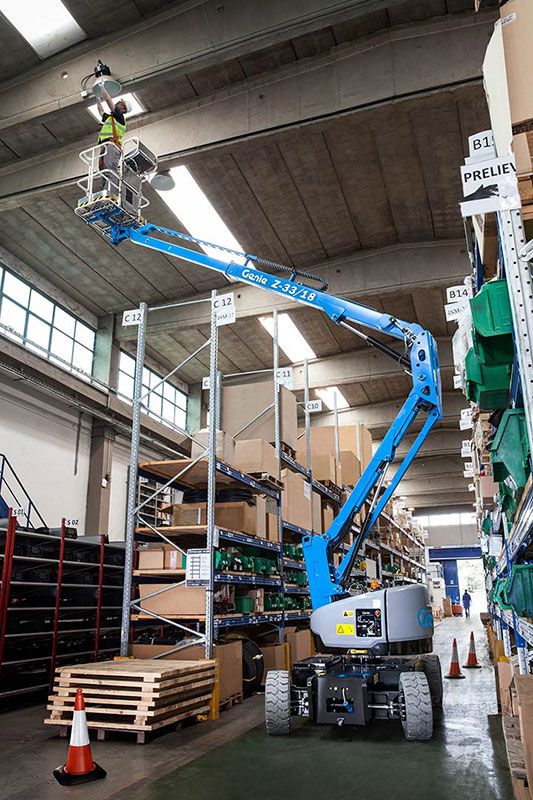
How High Can a Boom Lift Go?
Boom lifts can typically reach heights ranging from around 40’ to over 180’. “High-reach” or “ultra-boom” lifts can reach heights exceeding 200’. The maximum height a boom lift can reach is determined by factors such as the length and articulation of the extendable boom, the lifting mechanism’s design, and the stability of the lift.
What’s the Range of a Towable Boom Lift (aka Tow-Behind Boom Lift)?
Towable boom lifts generally offer a working height ranging from around 35’ to 65’ and a horizontal reach range of around 18’ to 30’.
What is the Difference Between a Boom Lift and a Scissor Lift?
Boom lifts and scissor lifts are both aerial work platforms used for accessing elevated areas, but they differ in design and capabilities. Boom lifts feature an extendable arm (boom) that provides vertical and horizontal reach, making them suitable for tasks requiring precise positioning and access over obstacles. Scissor lifts utilize a folding, crisscrossing mechanism to provide vertical elevation only, making them ideal for indoor tasks like ceiling installation, electrical work, and warehouse stocking.
Video: Boom Lift and Scissor Lift Comparison
Recent Equipment News
MEC MME25 Review: Specs, Features & Industry Perspective
MEC MME25 Review: Specs, Features & Industry [...]
Construction Equipment Trends 2025: Inside Q1–Q2 Demand & What It Means for You
Table of Contents Top 10 Categories Q1 vs [...]
FleetNow Announces Elijah Dollarhide as 2025 Construct Your Future Scholarship Winner
FleetNow Announces Elijah Dollarhide as Construct Your Future Scholarship [...]

